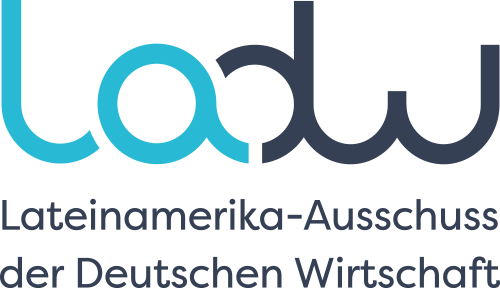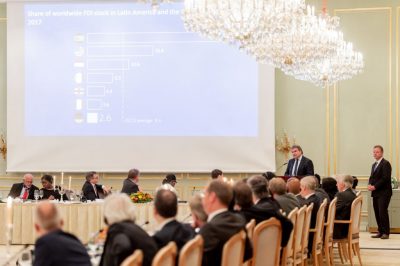Archived: Upheaval in Latin America – the best option is staying the course
Economic and political turnarounds are swiftly, indeed almost simultaneously, agitating 650-million-plus Latin Americans from north to south. For almost a year the new governments in the region’s two largest economies have been trying to implement their election promises. And that in opposing directions: in Mexico with a left-wing agenda, in Brazil with a right-wing but economically liberal one. In Argentina, too, the victory of left-wing opposition candidate Alberto Fernández in recent presidential elections brought about a significant political change, and thus a departure from the liberal economic course of Mauricio Macri.
Demonstrations and protests in various countries evince the displeasure of various segments of the population with regard to ongoing government policies, as has been seen in Ecuador, and currently in the former local poster-child for stability, Chile. On the heels of dubious elections, crisis-stricken Bolivia must now elect a new president. Unlike Venezuela, which is still in an ongoing state of emergency.
But it is indeed such situations that render thorough analysis of the countries there the order of the day so that long-term prospects don’t go unnoticed in the prevalent fog. Because current circumstances alone don’t define the market, its characteristics do. There really is a common denominator that can be seen in almost all ongoing political tensions in Latin America: a more informed society with an unprecedented interest in politics. This presents a challenge to established systems regardless of country or party. And it is precisely this attuned and unrelenting society that represents a significant achievement towards an increase in law and order and improved future framework conditions in Latin America’s still relatively young democracies.
Things will remain exciting in 2020. Trade disputes between the US and China are leaving a mark on the region. Companies in Latin America will initially have to adjust to economic uncertainty, an overall economic slowdown, and a broadly tense situation. But not in the long term. In Latin America, upheaval is often followed by revival. And Brazil’s role as anchor and source of stability will prove all the more important: should the country manage to implement its ambitious plan for structural reforms, state modernisation and infrastructure expansion, markets in the region will benefit massively. And that’s not to mention the opening of markets and free trade agreements with the USA, China and other nations that Brazil now has on its agenda. All of which being a further reason for us in Europe to rapidly move towards ratifying the EU-Mercosur Free Trade Agreement as long as we’re still in the race. Staying the course remains the best option!






